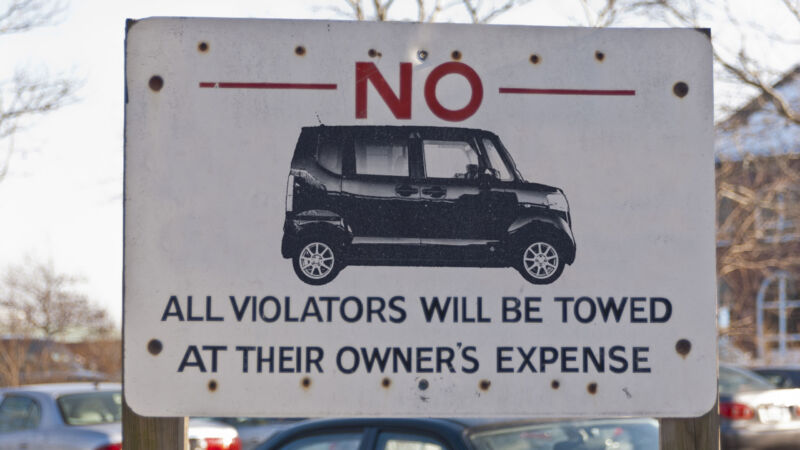not an easy one, tbh —
Limited in size and power, Kei cars are like fishes out of water on US roads.

Aurich Lawson | Getty Images
Kei cars are the antithesis of the big American SUV. Where EPA regulations effectively penalize automakers for building smaller, more efficient cars, Japan's Kei car regulations cap size, weight, and power to just fractions. Kei cars aren't just small, they're also pretty cheap, a fact that has made them a sales success in Japan and highly desirable as a gray-market import, particularly by people who think new cars have gotten too large, too complicated, and too expensive. A few years ago, Ars even wrote a guide on how to go about importing one from Japan.
But not everyone is a fan of the diminutive Kei import. As far as the federal government is concerned, as long as it's more than 25 years old, an imported car does not have to comply with federal motor vehicle safety standards or fuel economy standards; just makes sure you pay all your import duties.
That's because the federal government doesn't license vehicles to operate on public roads. That task belongs to the individual states, and increasingly, they are giving Kei cars the thumbs down—sometimes even in cases where previously those cars posed no problem.
Some states restrict Kei cars—often Kei trucks, in this case—to working as farm vehicles; depending on the state, they may travel up to 20 miles from the farm. Some states like Alabama and Arkansas allow them with conditions such as speed restrictions or no highway use. And others are outright banning them. Georgia, Maine, and New York have all done so, and now Massachusetts is the latest to join that movement, helpfully even publishing a list of examples of Kei cars it won't now register.
Are they safe on American roads?
The states aren't all using exactly the same reasoning for their crackdowns. In some cases, Kei cars have been classified as "off-road vehicles," deemed unfit for road use. In other cases, state DMVs have pointed to the lack of compliance with federal safety standards as justification for banning them.
The thing is, that's not exactly a misleading argument. Kei cars really are small, even compared to cars you do think are small, like a Mini Cooper or Fiat 500e. In 2017, the fine people at the Lane Motor Museum held a microcar rally, giving me a chance to drive a whole array of tiny four-wheel vehicles, including more than a few Kei cars.
While it was mostly a wonderfully fun day, driving cars that small surrounded by hulking full-size SUVs and even bigger class 8 dump trucks and tractor-trailers was flat-out terrifying. As I wrote then and reiterate now, half of those trucks wouldn't even have noticed if they'd run me over.
It's a problem of context. In their natural setting—the narrow and crowded streets of dense, urban Japan, the Kei car makes pretty good sense. But Americans have always liked their cars on the massive side of things, preferring land yachts like the Ford Galaxie, Buick Roadmaster, and Cadillac Eldorado over compact hatchbacks every day of the week. And let's not pretend the big SUV is a new phenomenon on North American roads—the oversized Chevy Suburban traces its birthday back to 1967.
Which brings up the harsh reality that is the laws of physics. When a big car hits a small car, the small car does worse. The fact that imported Kei cars are at least 25 years old adds a further snag—passive and active safety has come a long way in that time, and crashes that might not trouble a SmartCar may well mean severe injuries in a Kei car.
I reached out to the Insurance Institute for Highway Safety, the nation's leading independent vehicle safety testing organization, to see if it had any data on the matter. IIHS hasn't crash-tested any Kei cars recently, but it referred me to its position from a few years ago, which says that smaller, lighter vehicles that don't conform to the FMVSS, which includes Kei cars as well as Low-Speed Vehicles (which are limited to surface streets and 25 mph) "should not share busy public roads with regular traffic."
Although the Kei trucks that IIHS refers to are speed-limited to 25 mph, most Kei cars imported for road use are not similarly limited, and keeping up with the flow of traffic ought not to be an issue. But the crashworthiness should certainly give some pause.